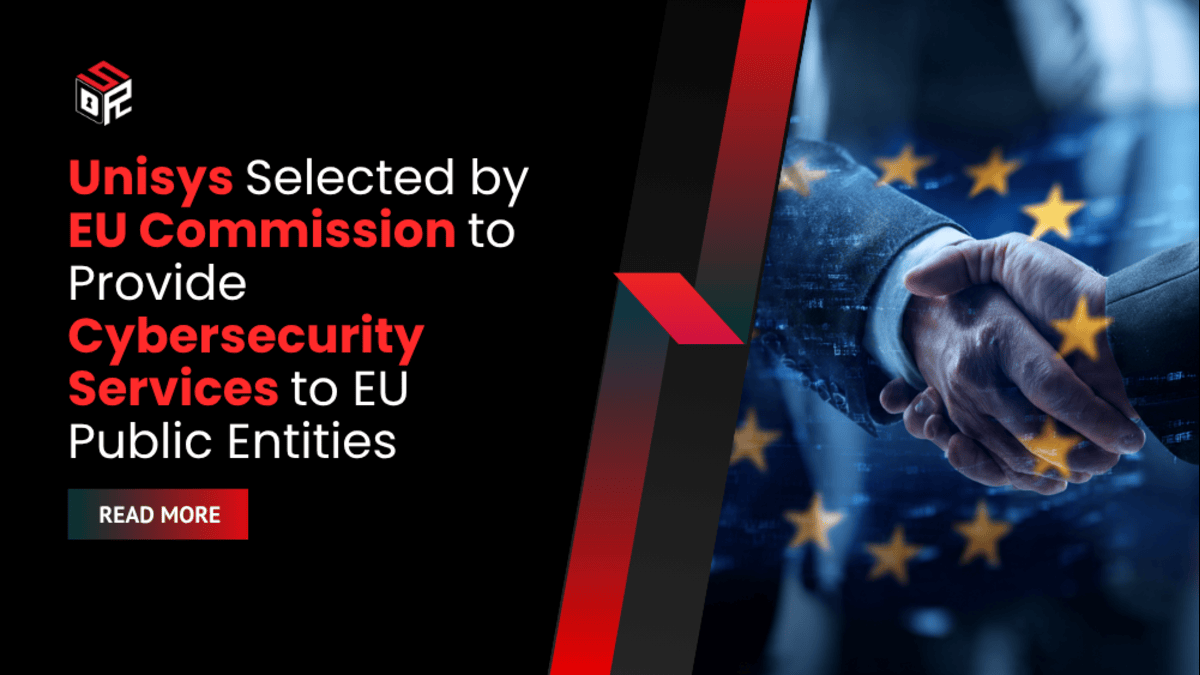Unisys has announced that it has been selected by the European Commission to deliver cybersecurity services to public-sector organizations across the European Union. The agreement, disclosed by Unisys in a corporate statement, tasks the company with supporting EU public entities in strengthening cyber defenses, improving incident response capabilities and enhancing resilience against increasingly sophisticated attacks.
The contract covers a range of security capabilities tailored for government environments, including managed detection and response, threat-intelligence sharing, security operations center augmentation, vulnerability management, and secure configuration of cloud and on-premises infrastructure. Unisys said the work will prioritize protection of critical public services and help standardize certain defensive measures across participating EU institutions and agencies. Terms of the award, including duration and financial details, were not disclosed in the company’s announcement.
Unisys Brings Managed Security, Incident Response and Threat Intelligence to EU Public Entities
Under the agreement, Unisys will deploy a mix of consulting and managed services to support the Commission’s operational cyber priorities. The services are intended to help public bodies identify active threats quickly, coordinate cross-agency responses, and reduce time to remediate vulnerabilities in common platforms. The company will also assist with threat-hunting exercises, tabletop incident-response drills, and the development of playbooks specific to public-sector operational technology and administrative systems.
Unisys said it will work closely with EU cyber authorities and with individual member-state IT teams to align technical controls with regulatory expectations and sector-specific risk models. The company expects to provide subject-matter expertise on topics such as identity and access management, secure software supply-chain practices, and logging and telemetry standards that enable centralized detection.
Analysts and officials view the procurement as part of a broader European effort to consolidate defensive capabilities and to enshrine best practices across a diverse set of public-sector IT estates. The selection of an external supplier is intended to supplement in-house capabilities, accelerate capability uplift, and provide a harmonized operational approach that member states can adopt or integrate into local programs.
Context: Rising Threats and European Cybersecurity Priorities
European public institutions have been the focus of targeted ransomware, espionage and supply-chain campaigns in recent years, prompting renewed attention to cross-border cooperation and resilience. The Commission’s engagement with established cybersecurity vendors aims to strengthen collective defenses and to operationalize lessons learned from prior incidents.
The procurement aligns with regulatory and policy frames that emphasize improved security posture for public services, including provisions introduced in recent EU-wide cybersecurity standards. By integrating managed services and incident-response support, the Commission seeks to reduce the mean time to detect and respond to threats as attackers increasingly combine automated scanning with hands-on tactics.
Officials involved in the program have highlighted the need to marry technical controls with governance changes — including clearer incident-reporting channels, standardized logging formats, and cross-jurisdictional escalation procedures — to improve defensive coordination across member states and the Commission itself.
= ==From Rapid Detection to Cross-Agency Coordination
Operationally, Unisys’ role is expected to cover a continuum of defensive activities. These will range from baseline assessments and vulnerability prioritization to continuous monitoring and active threat hunting. The company will also support post-incident activities such as forensic evidence preservation, root-cause analysis, and remediation planning to help ensure lessons learned are captured and applied.
A principal aim is to enable earlier detection of anomalous activity through enhanced telemetry collection and correlation across participating systems. Where incidents are identified, Unisys will provide playbooks and runbooks designed for public-sector technology stacks, enabling partners to isolate affected resources, maintain service continuity and coordinate with national CERTs and law-enforcement partners.
Governance and Vendor Oversight Considerations
The use of an external vendor to provide sensitive defensive services raises predictable governance issues that the Commission and member states must manage carefully. These include requirements for secure data handling, strict role-based access controls, clear limits on privileged access, and comprehensive audit trails for any work performed on public networks or systems.
Unisys and EU authorities must also address questions of data residency, retention policies for telemetry and logs, and confidentiality assurances for any incident artifacts processed as part of investigations. The Commission will likely require contractual safeguards, regular audits and reporting obligations to ensure transparency and compliance with relevant data-protection and procurement rules.
Capacity Building and Knowledge Transfer
In addition to operational assistance, the engagement is expected to include capacity-building elements aimed at strengthening in-house skills within EU public bodies. This component will emphasize transfer of knowledge in areas such as cyber-hygiene, secure configuration management, and incident-response coordination. Training exercises and joint simulations are anticipated to accelerate the learning curve for local teams and to embed new practices sustainably.
The emphasis on knowledge transfer reflects a longer-term objective to reduce reliance on external contractors and to develop a cadre of cyber professionals across member-state agencies who can maintain and evolve defensive postures independently.
Next Steps and Public-Interest Implications
Unisys said work will commence in coordination with the Commission and relevant EU cybersecurity entities. The company and the Commission will likely publish further details when standardized implementation plans and timelines have been finalized. Meanwhile, stakeholders in national governments, public-service IT teams and civil-society groups will monitor the program to ensure it balances effective defense with appropriate oversight and accountability.
The award illustrates a pragmatic approach by EU authorities: pairing industry expertise with public-sector responsibilities to respond to dynamic cyber threats. As the program unfolds, its effectiveness will be judged on measurable improvements in detection times, incident resolution, and the durability of transferred capabilities within public institutions.









